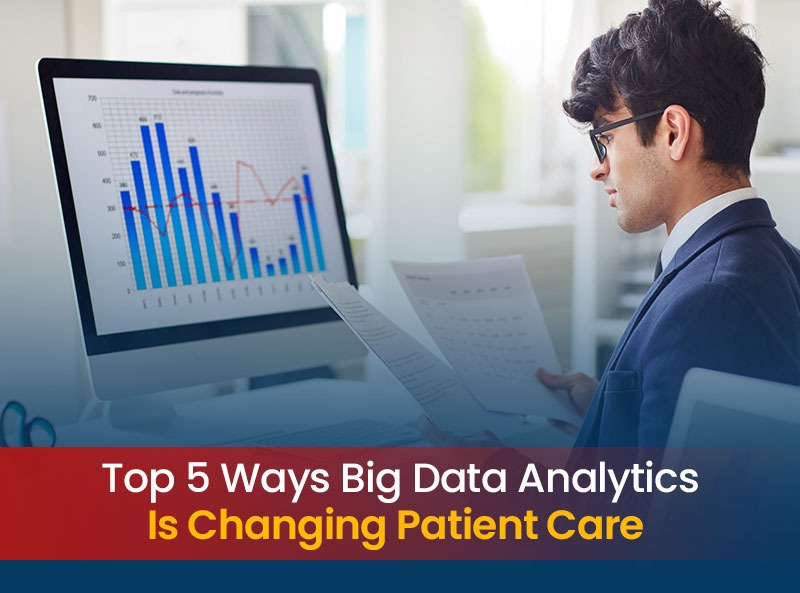


Big Data Analytics has become a game-changer in healthcare, reshaping how medical institutions deliver patient care. By harnessing the vast amounts of data generated in the healthcare ecosystem, organisations are making informed decisions that improve outcomes, streamline processes, and reduce costs. Below are the top five ways big data analytics is revolutionising patient care.
Big data enables healthcare providers to craft personalized treatment plans tailored to individual patients. By analyzing genetic information, medical history, lifestyle data, and environmental factors, providers can predict how a patient might respond to specific treatments. For example, cancer therapies can now be customized based on a patient’s genomic profile, leading to better results and fewer side effects. This shift from one-size-fits-all treatments to precision medicine is improving the effectiveness of care and enhancing patient satisfaction.
Predictive analytics allows for early identification of potential health risks, enabling proactive intervention. By analyzing patterns in patient data, healthcare professionals can identify individuals at risk for chronic diseases such as diabetes, hypertension, or heart disease. Tools powered by machine learning algorithms can alert doctors and patients to take preventive measures, such as lifestyle changes or early medication, reducing the burden of severe illnesses on both the patient and the healthcare system.
Big data is helping healthcare organizations optimize their operational workflows. By analyzing hospital admission trends, patient wait times, and resource utilization, administrators can make data-driven decisions to allocate resources more efficiently. For instance, predictive models can forecast peak patient volumes, enabling hospitals to better prepare staffing and supplies. This efficiency reduces patient wait times and ensures timely care, enhancing the overall patient experience.
Wearable devices and Internet of Things (IoT) technologies are generating real-time patient data that can be analyzed to provide continuous monitoring and alerts. Big data analytics processes this information to detect abnormalities, such as irregular heart rates or blood sugar levels, and notifies healthcare providers immediately. These advancements are particularly beneficial for managing chronic diseases and ensuring patient safety, even outside the clinical setting.
Big data plays a vital role in public health initiatives by identifying trends and outbreaks, improving vaccination strategies, and addressing health disparities. Data from electronic health records, social media, and geographic information systems (GIS) can be analysed to monitor disease spread, allocate resources effectively, and develop targeted interventions. For example, during the COVID-19 pandemic, big data was crucial in tracking the virus's spread and informing public health policies.
The integration of big data analytics into healthcare is not just about technological innovation; it’s about transforming the patient experience. By enabling personalized care, predictive interventions, and operational efficiency, big data empowers both providers and patients to make smarter healthcare decisions. As technology continues to evolve, its impact on patient care will only deepen, promising a future of more accurate diagnoses, proactive treatments, and equitable health outcomes. Contact Us today.